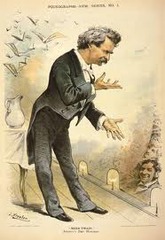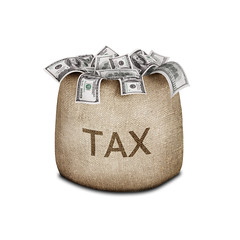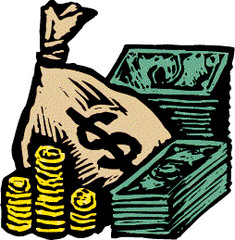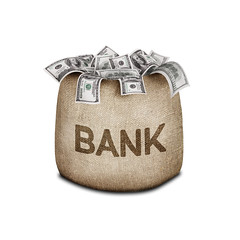AMSCO United States History 2018 Edition, Chapter 19 The Politics of the Gilded Age, 1877-1900
| 12458683624 | laissez-faire economics and politics | The idea that government should do little to interfer with the free market. (p. 380) |  | 0 |
| 12458683626 | patronage politics | The use of government resources to reward individuals for their electoral support. (p. 381) |  | 1 |
| 12458683633 | states rights, limited government | Democrats of the Gilded Age were in favor of these ideas; Jeffersonian tradition. (p. 381) |  | 2 |
| 12458683634 | big-city political machines | In the North, one source of Democratic strength came from big-city political machines. (p. 381) |  | 3 |
| 12458708122 | Boss Tweed and Tammany Hall | Leader of the Tammany Hall, New York political machine which traded jobs, housing, or special privileges to immigrants for future votes. | 4 | |
| 12458683635 | immigrant vote | In the North, one source of Democratic strength came from the immigrant vote. (p. 381) |  | 5 |
| 12458683637 | federal government jobs | During the Gilded Age, these jobs were given to those who were loyal their political party. (p. 381) |  | 6 |
| 12458683639 | Election of 1880 | In 1880, James A. Garfield was elected president in a very close election. His vice president was Chester A. Arthur. (p. 382). This election was heavily influenced by the desire to end government corruption. The attempt to end the patronage system would cost Garfield his life becoming the second president to be assassinated (1881) in the last 16 years! |  | 7 |
| 12458683640 | Chester A. Arthur | He became president after James Garfield died of a gun shot wound. (p. 383) |  | 8 |
| 12458683641 | Pendleton Act of 1881 | Set up by the Civil Service Commission, it created a system where federal jobs were awarded based on competitive exams. (p. 384) |  | 9 |
| 12458683642 | civil service reform | Public outrage over the assassination of President Garfield pushed Congress to remove some jobs from control of party patronage. (p. 384) |  | 10 |
| 12458683644 | high tariff | In the 1890s, tariffs provided more than half of the federal revenue. Some Democrats objected to the tariffs because the raised the price on consumer goods and made it for difficult for farmers to sell to export because foreign countries enacted their own tariffs. (p. 385) |  | 11 |
| 12458683645 | business vs. consumers | Some people objected to the high tariffs because the raised the prices on consumer goods. (p. 385) |  | 12 |
| 12458683647 | McKinley Tariff of 1890 | In 1890, this tariff raised the tax on foreign products to a peacetime high of 48 percent. (p 386) |  | 13 |
| 12458683648 | Wilson-Gorman Tariff of 1894 | This tariff provided a moderate reduction in tariff rates and levied a 2 percent income tax. (p. 388) |  | 14 |
| 12458683649 | Dingley Tariff of 1897 | Increased the tariff rate to more than 46 percent and made gold the official standard of U.S. currency. (p. 390) |  | 15 |
| 12458683650 | "hard" money vs. "soft" money | Money backed by gold vs. paper money not backed by specie (gold or silver). (p. 384) |  | 16 |
| 12458683651 | banks, creditors vs. debtors | Debtors wanted more "easy, soft" money in circulation. On the opposite side creditors stood for "hard, sound" money - meaning currency backed by gold. (p. 384) |  | 17 |
| 12458683652 | Panic of 1873, "Crime of 73" | Congress stopped making silver coins. (p. 385) which infuriated western farmers. |  | 18 |
| 12458683653 | Specie Resumption Act of 1875 | Congress sided with creditors and investors when it passed this act which withdrew all greenbacks (paper money not backed by gold or silver) from circulation. (p. 385) |  | 19 |
| 12458683654 | Greenback party | This political party was formed by supporters of paper money not backed by gold or silver. (p. 384) |  | 20 |
| 12458683655 | Bland-Allison Act of 1878 | In 1878, this act allowed a limited coinage of silver each month at the standard silver-to-gold ratio of 16 to 1. (p. 385) |  | 21 |
| 12458683656 | Sherman Silver Purchase Act of 1890 | This act increased the coinage of silver but it was not enough to satisfy the farmers and miners. (p. 386) |  | 22 |
| 12458683658 | repeal of Sherman Silver Purchase Act | A decline in silver prices encouraged investors to trade their silver dollars for gold dollars. The gold reserve fell dangerously low and President Grover Cleveland was forced to repeal the Sherman Silver Purchase Act of 1890. (p. 387) |  | 23 |
| 12458683659 | election of 1888, Harrison "Billion Dollar Congress" | In 1888, the Republican Benjamin Harrison became the president and the Republicans controlled Congress. They passed the first billion dollar budget in U.S. history. (p. 386) |  | 24 |
| 12458683660 | rise of the Populist Party | In 1892, delegates met in Omaha, Nebraska to draft a political platform that would reduce the power of trusts and bankers. They nominated James Weaver as their candidate for president. (p. 386) |  | 25 |
| 12458683664 | Omaha Platform | In 1892, the Populist party met in Omaha, Nebraska to draft this political platform and nominate a presidential candidate. (p 386) |  | 26 |
| 12458683665 | election of 1892, Cleveland returns | The 1892 presidential election was between President Benjamin Harrison and former president Grover Cleveland. Cleveland became the only president to win a presidential election after having left the office. (p. 387) |  | 27 |
| 12458683666 | Panic of 1893 | In 1893, the stock market crashed as a result of speculation in railroad companies. One of the worst and longest depressions in U.S. history. (p. 387) |  | 28 |
| 12458683667 | Coxey's Army, March on Washington | In 1894, Populist Jacob A. Coxey led a march to Washington to demand that the federal government spend $500 million on public works programs. (p. 388) |  | 29 |
| 12458683669 | William Jennings Bryan | The 1896 Democratic nominee for president. (p. 388) |  | 30 |
| 12458683670 | "Cross of Gold" Speech | William Jennings Bryan gave this speech at the 1896 Democratic convention. The prosilver and anti-gold speech assured him of the nomination. (p. 389) |  | 31 |
| 12458683671 | fusion of Democrats and Populists | In the 1896 presidential election the Democrats and Populists both nominated William Jennings Bryan for president in fused campaign. (p. 389) |  | 32 |
| 12458683672 | unlimited coinage of silver at 16 to 1 | In 1896, the Democrats favored silver coinage at this traditional but inflationary rate. (p. 389) |  | 33 |
| 12458683673 | Election of 1896: candidates and issues | William McKinley won the presidential election of 1896 by carrying the all the Northeast and the upper Midwest. (p. 389). Conservative "Gold Bug" (supported the gold standard, not bi-metallism) Democrats either split the party, refusing to vote for the populist Bryan and created the National Democratic Party, or simply voted Republican. |  | 34 |
| 12458683674 | gold standard and higher tariff | In 1897, William McKinley became president just as gold discoveries in Alaska increased the money supply under the gold standard. The Dingley Tariff increased the tariff rate to 46 percent. (p. 390) |  | 35 |
| 12458683675 | rise of modern urban industrial society | The 1896 election was a victory for big business, urban centers, conservative economics, and moderate middle-class values. Rural America lost its dominance of American politics. (p. 390) |  | 36 |
| 12458683676 | decline of traditional rural-agricultual | The 1896 election marked the point of decline of rural America's power in national politics. (p. 390) |  | 37 |
| 12458683677 | start of the modern presidency | William McKinley emerged as the first modern president, he would make America an important country in international affairs. Foreign Policy became as important to presidential elections as domestic policy (p. 390) |  | 38 |
| 12458683678 | era of Republican dominance | The election of McKinley in 1896 started an era of Republican dominance of the presidency (seven of next nine elections) and Congress. (p. 390) |  | 39 |

